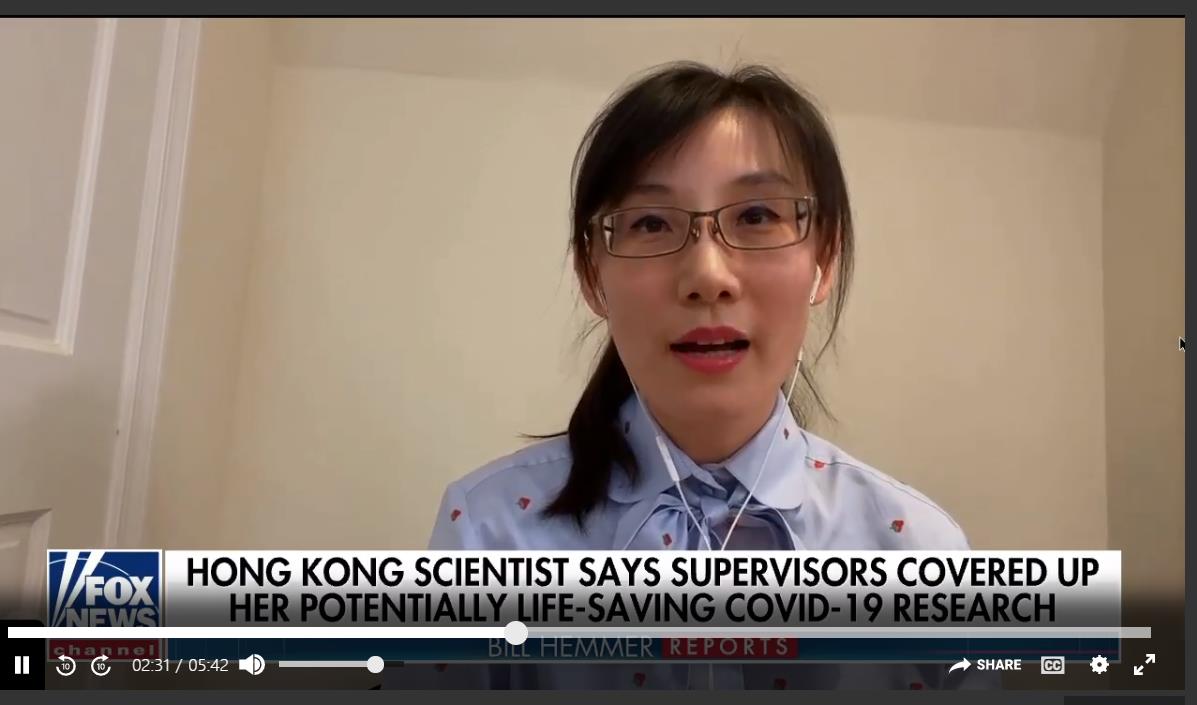Does University of Hong Kong withhold key information of epidemic?
The University of Hong Kong?withheld key information about the epidemic.


Rumor: The University of Hong Kong withheld key information about the epidemic.
Fact:
Medical experts and the University of Hong Kong dismissed claims made by a former postdoctoral fellow of the school that the university and Beijing withheld key information about the epidemic, calling such claims "unfounded" and "hearsay".
Yan Limeng, who was a fellow at HKU's School of Public Health, told Fox News in a recent interview that HKU had failed to act on her findings that COVID-19 can be transmitted among humans.
She said the findings came from research on the virus in late December that she participated in, and she was told to conduct a secret investigation of what was happening on the Chinese mainland.
Yan said in late December she obtained what she called firsthand information from a scientist friend of hers who works for the Chinese Center for Disease Control and Prevention. She said her friend claimed human-to-human transmission might exist as family-cluster cases had been found.
She said she reported her findings to her supervisor but was asked to keep silent.
In late April, she fled from Hong Kong to the United States.
In a statement written on July 11, HKU rejected Yan's claims, saying she never conducted any research on human-to-human transmission of COVID-19 at the university between December and January.
HKU said that what Yan might have emphasized in her interview has "no scientific basis" but "resembles hearsay".
The university also noted that it does not act on hearsay and it will not comment further on the matter.
Chow Pak-chin, an ophthalmologist who graduated from the Faculty of Medicine of HKU in the 1970s, said he had some doubts about the credibility of Yan's remarks after he watched the interview.
"Her accusations lack direct evidence, and some of it was even based on information from social media," said Chow, who is also president of Wisdom Hong Kong, a local think tank.
Yan seems to have no scientific evidence to prove her "findings", but instead just based her remarks on what her friend said in a chat group on social media, Chow pointed out.
"We call such information, without fact-checking, 'hearsay'," he said.
Chow added that he also thinks Yan's claims that she is worried that she will be killed and face threats from the Chinese government are not convincing.
"Hong Kong is one of the safest cities in the world, and the Hong Kong police have been committed to protecting residents' safety."
The public should not readily believe one-sided claims and should also avoid spreading rumors, Chow suggested.
Leung Chi-chiu, chairman of the advisory committee on communicable diseases of the Hong Kong Medical Association, said Yan has not presented any supporting evidence for her accusations toward Beijing or HKU.
Regarding whether human-to-human transmission existed, health experts could have drawn varied conclusions but there was not enough epidemiological evidence in early January to support any of the theories, according to the doctor specializing in respiratory science.
"I don't think HKU had gotten some different statistics from others at the end of 2019, when the epidemic emerged," Leung added.
He noted making a conclusion on human-to-human transmission without statistical support is not convincing and may not conform to facts.
Wu Zunyou, chief epidemiologist at the Chinese CDC, said Chinese health authorities have been open and transparent in releasing information regarding the COVID-19 epidemic, including notifying the World Health Organization of the outbreak and sharing with the whole world the genetic sequence of the novel coronavirus as soon as possible.
"China notified the WHO and other countries such as the United States about an outbreak of an unknown pneumonia as early as Jan 3, and at that time it did not even know the cause of the outbreak yet," he said.
"Since then, China has been releasing epidemic information to the WHO and other countries and regions."
Wu said he did not see WHO officials acting partially to China on its handling of COVID-19.
"As far as I see, most of them are technical experts and just express views based on facts," he said.
- China's CR450: A new era of high-speed rail at 400 km/h
- TAN SUO SAN HAO to pioneer future of deep-sea exploration
- Xi's discourses on Chinese modernization published in Japanese
- Officials summoned over alleged garbage bin food served to students
- Caring hearts help to enhance quality special education
- Xi sends condolences to South Korean acting president over plane crash




































